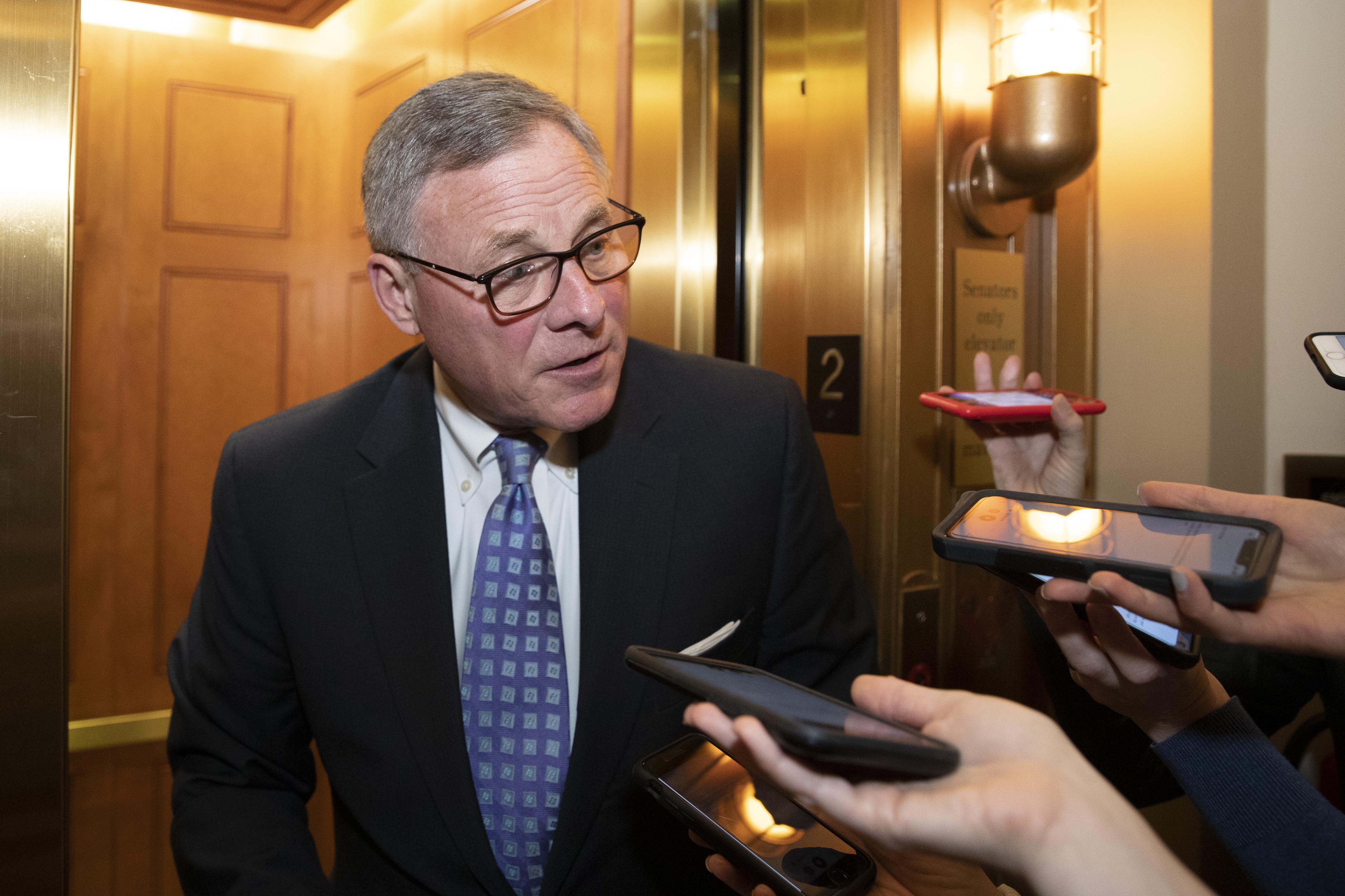
The response to the digital assault was also “tempered … over concerns about appearing to act politically on behalf of one candidate, undermining public confidence in the election, and provoking additional Russian actions,” the panel found.
The 54-page, partially redacted report focuses exclusively on the Obama administration’s efforts to deal with Moscow’s interference ahead of Election Day.
It lays out several factors that hamstrung the White House’s ability to coordinate a response, including partisan concerns not only on the campaign trail, but also in Congress.
The report details resistance by Senate Majority Leader Mitch McConnell to issuing a bipartisan statement in 2016 about the Russian effort.
Former homeland security adviser Lisa Monaco recalled a conversation with McConnell where he stated, „You security people should be careful that you’re not getting used,“ which she interpreted as the GOP leader doubting the intelligence concluding Russia was attempting to interfere.
A spokesperson for McConnell didn’t immediately respond to a request for comment.
The Senate report marks the third installment of the panel’s five-volume series outlining the scope of Russian election interference in 2016.
“After discovering the existence, if not the full scope, of Russia’s election interference efforts in late-2016, the Obama Administration struggled to determine the appropriate response,” Intelligence Chairman Richard Burr (R-N.C.) said in a statement. “Frozen by ‘paralysis of analysis,’ hamstrung by constraints both real and perceived, Obama officials debated courses of action without truly taking one.“
Sen. Mark Warner of Virginia, the panel’s top Democrat, said there “were many flaws with the U.S. response to the 2016 attack, but it’s worth noting that many of those were due to problems with our own system.”
“I am particularly concerned however, that a legitimate fear raised by the Obama Administration — that warning the public of the Russian attack could backfire politically — is still present in our hyper-partisan environment.”
Other elements that marred the White House response included a muddled interagency process which grappled with issues such as how to deal with WikiLeaks — the anti-secrecy group that published materials from the Democratic National Committee hack in 2016 and has since been dubbed by U.S. intelligence officials as a tool for Russian operatives.
In an addendum to the report, Sen. Ron Wyden (D-Ore.), a senior panel member, wrote that not issuing a “bipartisan public acknowledgment of the ongoing attack by Russia” was a mistake.
“An acknowledgment of Russian influence operations, particularly operations intended to help Donald Trump, would have reflected poorly on the candidate and his campaign,” he wrote. “But that should not have been a reason for the administration and members of Congress to withhold from the public warning of an ongoing attack by a foreign adversary.”
The committee makes a number of recommendations to counter future attacks on U.S. elections, such as suggesting the president “should take steps to separate himself or herself from political considerations when handling issues related to foreign influence operations.”
In addition, current officeholders and candidates “should use the absolute greatest amount of restraint and caution if they are considering publicly calling the validity of an upcoming election into question.”
President Donald Trump has frequently downplayed the election security threat posed by Moscow, despite repeated public and private warnings from his own Cabinet. He has also previously signaled that he would accept campaign help from a foreign power, including in 2016 when he appealed to Russia to find Hillary Clinton’s „missing“ emails.
The committee also emphasized that in case of future attacks, the public should be notified “as soon as possible with a clear and succinct statement of the threat.”
Lawmakers urged the executive branch to develop “a range of standing response options that can be rapidly executed” in the event of an election attacks.
The report also calls for partnering with Russia’s neighbors to better identify Moscow’s latest “active measures and assist these partners’ ability to defend against them.”
“Such partnerships will help to prepare defenses for the eventual expansion of interference techniques targeting the West,” it adds.
Further, the report recommends the U.S. exert its leadership in creating international cybersecurity norms.
The new report is the result of an expansive investigation that has lasted roughly three years and included interviews with hundreds of witnesses.
The committee released the first chapter, which detailed Russian efforts to attack state elections systems and spread disinformation, last July. The second installment, issued in October, focused on the Kremlin’s documented attempts to sow political discord on social media.
Source: politico.com
See more here: news365.stream






